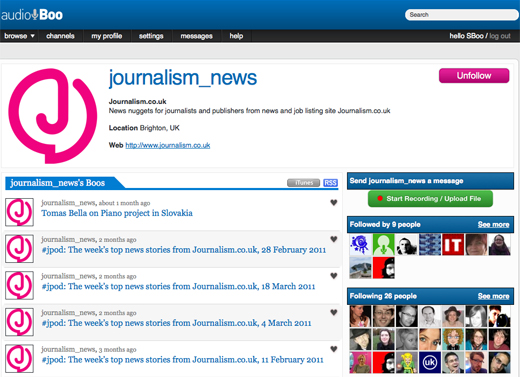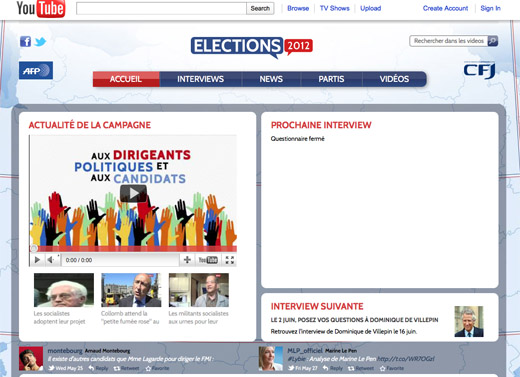One of the afternoon panels at the BBC’s Social Media Summit today asked the question: Can mainstream media compete with start-ups in social media innovation?
The panel featured Mark Little of Storyful, which provides a platform for those in the centre of the action to build a story and have it published, and Mark Rock of Audioboo, which enables the recording and uploaded of audio which can then be widely shared and published.
There overall message was that the difference between mainstream media and start-ups is the ability to fail and as a result mainstream media is still in the “electrical age” while start-ups have stepped into the digital.
The BBC itself came in for some criticism. Rock said Audioboo was not allowed to be embedded on BBC website, which he called”ludicrous”.
Individuals are the ones pushing innovation. At some point you will lose them. I don’t think you’ve got the right mindset.

“The BBC should be leading innovation in the UK and it’s not,” he later said. Little added that on this side of the Atlantic he feels there is a different attitude to innovation.
I get the sense that if some test product comes out that doesn’t work it’s destined for the bin. We need to try things all the time.
The other issue he added, is the focus on the word “compete”. It is about collaboration instead, he said, with both sides having valuable lessons to learn from the other.
We’ve worked with YouTube and US organisations and learnt a lot about verification and discovery. I don’t care who’s first to break news, it’s the opposite of what it’s all about, collaboration. On social media you need to learn and move forward. I’m still a little disappointed we’re being asked to choose between gurus … For us it is about seeing the problem with mainstream media and finding the solution.
Experimentation is on the cards at the New York Times, fellow panelist Liz Heron from the New York Times said. nuru massage nyc
We don’t really have any social media guidelines – use common sense and just don’t be stupid. We don’t want to scare people into not using social media to it’s full potential.
Part of the Times’ focus in the near future in this area is to bring social media into the high-impact projects the newsroom is working on, such as it did in the run-up to the Oscars.

By collaborating with the Times’ developers it enabled users to personalise the story by voting for their favourites and sharing that information with their ‘friends’ using Facebook.
Facebook will give you a lot of info, so we were able to show what kind of person was going in for the Kings Speech, for example, so got some interesting visualisations. In a way we therefore used a form of gamification to engage users. We want to do more to build platforms around our journalism in this way and allow our content to not only get distributed further but get some interesting information back on our key readers from it.
She added that Facebook, having “cracked the code” of Twitter, was now the focus for experimentation and innovation.
Our journalists have not figured out how to interact with it just yet. We’re working to bring Facebook journalism onto the main page.
Twitter is not being ignored though, with the New York Times’ “ciborg” account having its autofeed turned off next week as an experiment to take the Times’ participation on the platform “to the next level”.


